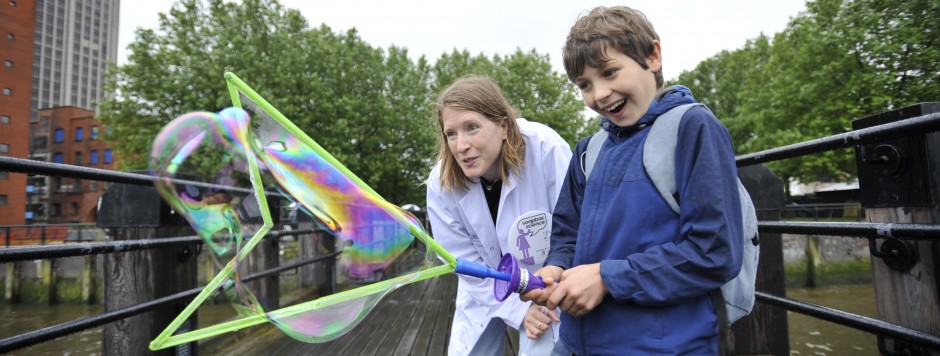 Dr Denize Atan is a Consultant Senior Lecturer in Ophthalmology at the University of Bristol and Bristol Eye Hospital. She is a doctor, a scientist and currently works as the Lead for Women in Science in the School of Clinical Sciences at the University of Bristol.
Dr Denize Atan is a Consultant Senior Lecturer in Ophthalmology at the University of Bristol and Bristol Eye Hospital. She is a doctor, a scientist and currently works as the Lead for Women in Science in the School of Clinical Sciences at the University of Bristol.
She uses her position to promote a fair and positive working environment in the University that embraces diversity. You can hear her speak at Soapbox Science in Bristol this Saturday.
SS: Denize, how did you get to your current position?
DA: I am a medically qualified doctor who also does basic science research. I qualified as a doctor from the University of Oxford and initially set upon a career in medicine. I had always been fascinated by the physiology of the eye and how we perceive the world as a medical student, and though I did not exactly plan to become a neuro-ophthalmologist in medical school (mainly because I did not know the specialty existed then!), I think my career path evolved towards neuro-ophthalmology because of my inherent interests in vision and the visual system. I took time out of my medical training to do some research in ophthalmic genetics and a PhD. This period of my life really opened my eyes to the opportunities that a parallel career in science would give me to make new discoveries and help people in ways other than direct clinical care.
SS: What, or who, inspired you to get a career in science?
DA: The opportunity to make further discoveries about how amazing the human body truly is! It is quite remarkable how each individual is put together from a instruction booklet encoded in our DNA – something far more complicated than a well known brand of flatpack furniture. I am continually inspired by the enthusiasm and creativity of everyone who works in science.
SS: What is the most fascinating aspect of your research/work?
DA: I would say that every day I spend, either in the hospital seeing patients or in the lab conducting experiments, is different and that I am always learning new things. There are highs and lows with any job, but the highs of making a difficult diagnosis that no-one else has thought of, or making a new scientific discovery that no-one else has encountered yet are really exceptional and keep me motivated to continue what I am doing.
SS: What attracted you to Soapbox Science in the first place?
DA: I am strongly supportive of everything that Soapbox Science represents and believe that the general public is inherently interested in science when presented in varied and accessible ways. I also believe that young girls and boys should be encouraged to pursue careers in science and not discount them because they believe scientists are like what they see in the movies! Of course, scientists are all normal people!!!
SS: Sum up in one word your expectations for the day – excitement? Fear? Thrill? Anticipation?
DA: Butterflies (in my stomach – not the insects)
SS: If you could change one thing about the scientific culture right now, what would it be?
DA: I would like to change how the scientific community is currently perceived and encourage greater diversity.
SS: What would be your top recommendation to a female PhD student considering pursuing a career in academia?
DA: Go for it! Determination and self-belief are all you need (as for any career path)
